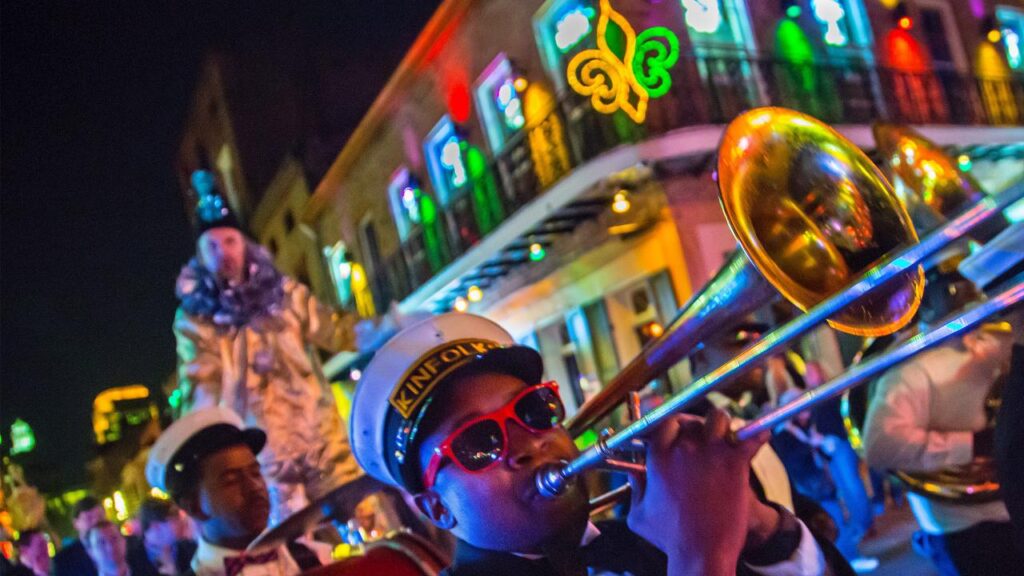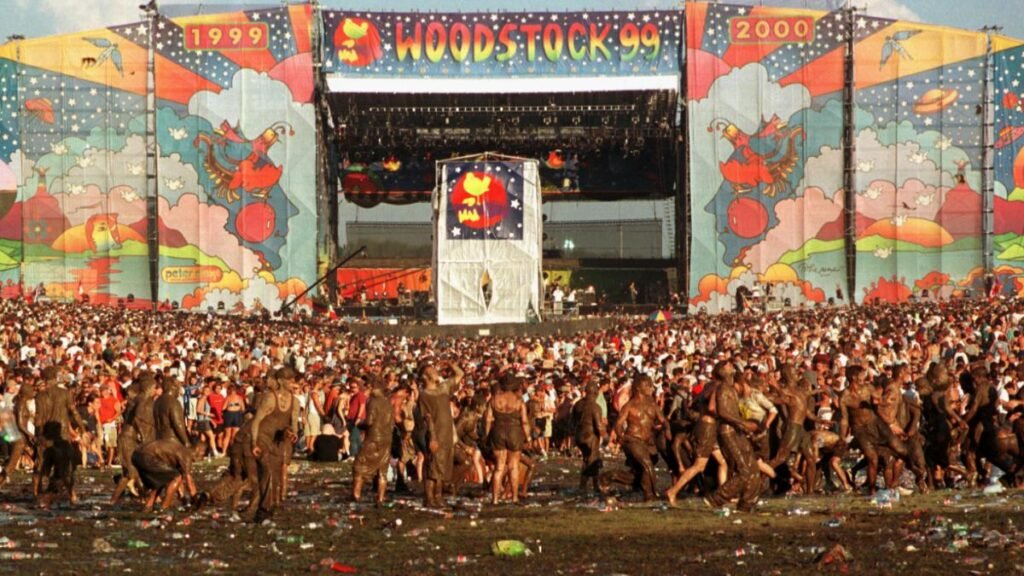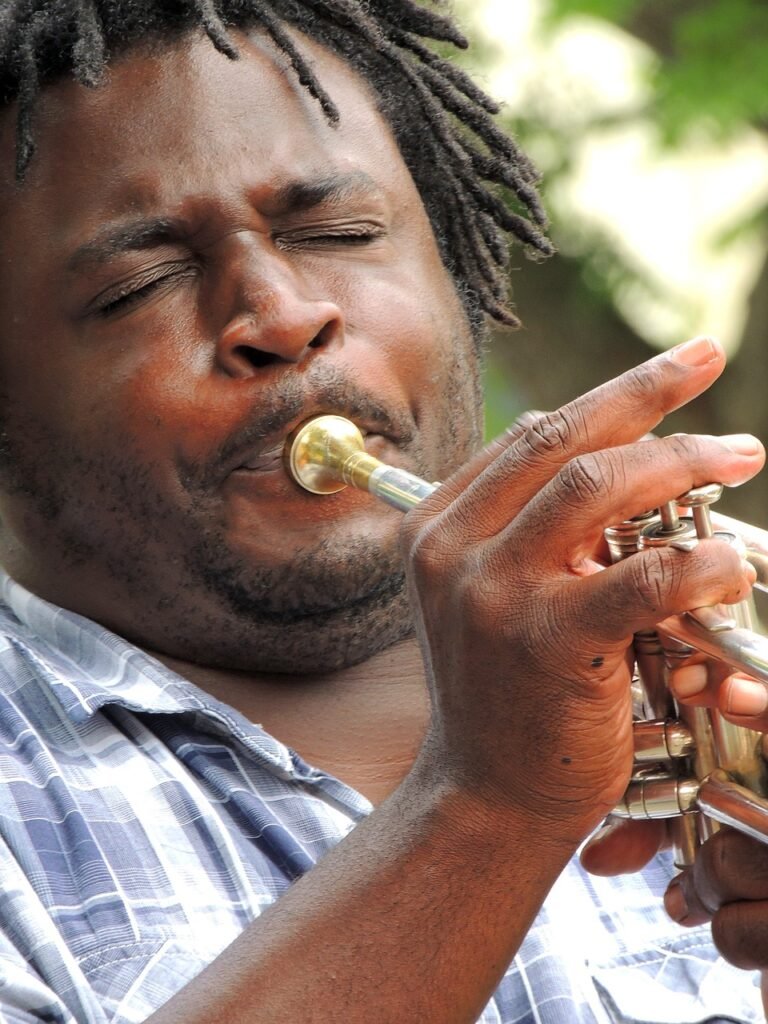Welcome to JamFest, where we celebrate the deepest roots and most vibrant sounds in music history. Tonight, the What is Hip?! Radio Show invites listeners on an unforgettable journey to New Orleans, a city that isn’t just famous for music—it is defined by it. Widely regarded as the birthplace of jazz, the Crescent City’s musical heritage is a testament to its unique cultural fusion, a dynamic melting pot that continues to influence global sounds.
New Orleans music is more than just entertainment; it’s a living, breathing tradition shaped by centuries of cultural exchange. From the earliest days of Dixieland to the energetic rhythms of modern Bounce, the city’s soundscape reflects a powerful blend of African, Caribbean, French, Spanish, Italian, and Sicilian influences. This rich tapestry is what gives New Orleans music its distinctive character, a soulful complexity that sets it apart.
The Genesis of Jazz and the Power of Congo Square
The foundation of New Orleans’ musical identity lies in the ingenuity of its early inhabitants. The city’s unique history, particularly the weekly gatherings of enslaved and free people of color at Congo Square in the 19th century, was crucial. Here, in a relatively rare space of sanctioned gathering, African traditions—including rhythms, drumming, and collective performance—were preserved and nurtured. The sounds of the bamboula and other African instruments laid the groundwork for future genres.
This synthesis of African rhythms and European instrumentation birthed Dixieland, the earliest form of jazz. Characterized by collective improvisation and a unique brass band instrumentation, early jazz musicians like Louis Armstrong and Jelly Roll Morton revolutionized music. While Dixieland paved the way, jazz in New Orleans continues to evolve, constantly drawing on new influences while honoring its storied past.
A Spectrum of Sound: Beyond the Horns
While jazz remains central, New Orleans’ musical heritage is incredibly diverse. The city’s vibrant culture has cultivated a variety of iconic genres:
Blues: New Orleans Blues is a uniquely expressive form, heavily influenced by jazz and the Caribbean. Unlike the guitar dominance of other regions, New Orleans Blues is often marked by piano and saxophone, thanks to legends like Professor Longhair and Dr. John.
R&B and Funk: New Orleans played a pivotal role in shaping R&B. Artists like Fats Domino and the pioneering funk band The Meters laid down the foundational grooves that defined early funk, characterized by syncopated rhythms and a heavy, infectious beat.
Brass Bands and the Second Line: More than just a genre, brass bands are the heartbeat of New Orleans. They are a cultural cornerstone, providing the soundtrack to everything from joyous celebrations to solemn jazz funerals. The “second line” tradition, where community members spontaneously join parades with exuberant dancing, is a powerful visual representation of the city’s relationship with music and community.
Bounce: This energetic, uniquely New Orleans genre has recently exploded onto the national stage. Defined by its frenetic pace and signature “Triggaman” and “Brown” beats, Bounce has influenced contemporary music from global stars like Beyoncé and Drake. Artists like Big Freedia have become international ambassadors for this high-energy dance music.
Zydeco: A regional staple from Southwest Louisiana, Zydeco—with its accordion-driven rhythms and use of the rubboard—adds an infectious, danceable element that has been fully embraced by New Orleans musicians and audiences.
Experiencing the Vibe
The enduring power of New Orleans music is its ability to remain a living tradition, constantly evolving while honoring its roots. Visitors to the city can still experience this dynamic culture firsthand, from the historic significance of Congo Square in Louis Armstrong Park to the countless vibrant jazz clubs on Frenchmen Street like Preservation Hall and The Spotted Cat Music Club.
Whether you’re exploring the roots of jazz at the New Orleans Jazz & Heritage Festival or getting swept up in a street parade, the spirit of the city’s music is palpable.
Join the What is Hip?! Radio Show tonight as we celebrate this extraordinary legacy. From the soulful depths of the blues to the exhilarating heights of brass bands and Bounce, New Orleans music is an unparalleled experience that reminds us all: the rhythm of a city is the rhythm of its soul.



